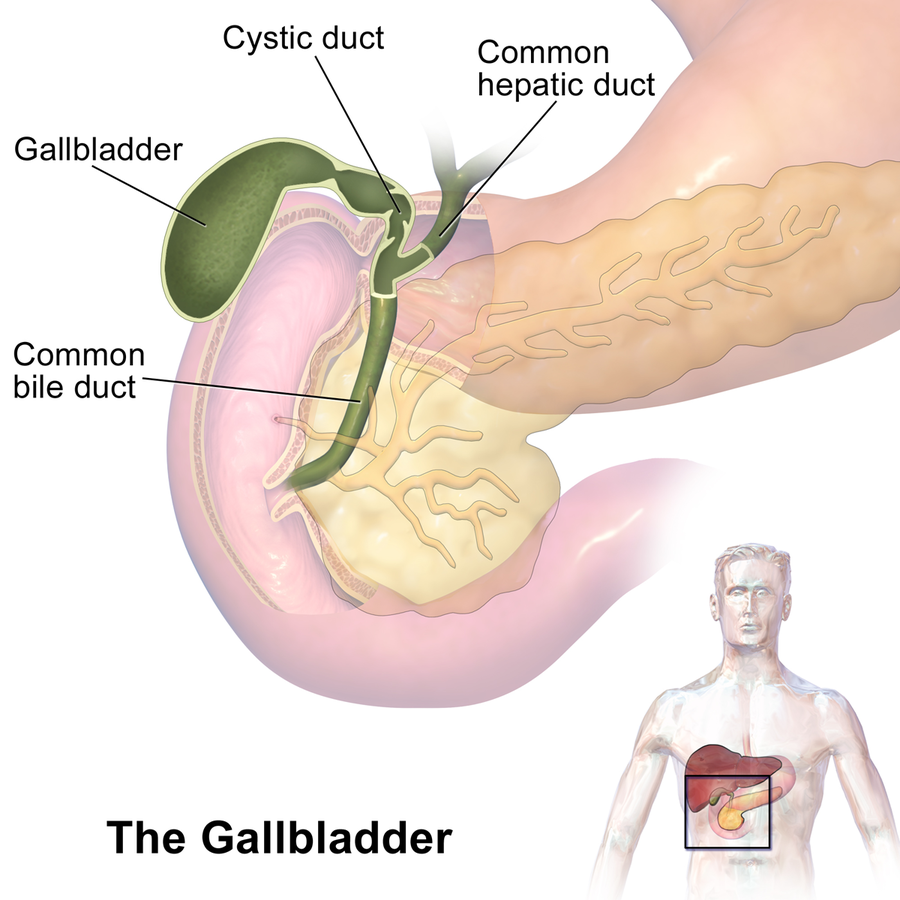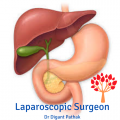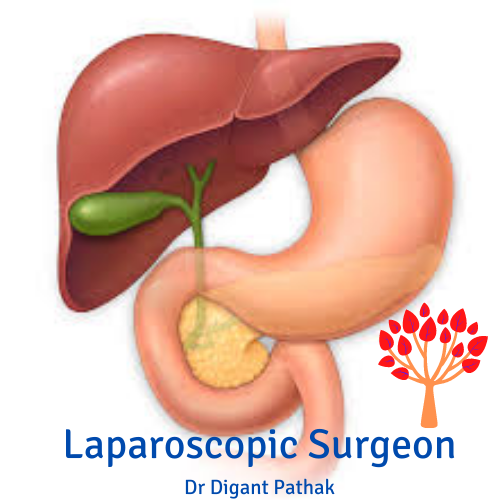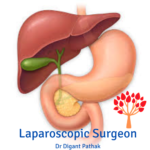
The gall bladder is a small organ attached to the liver. Its main function is to store bile. Bile is a digestive juice formed for digestion in the liver. This bile goes and gets stored in the gall bladder. When food goes into the intestine, the gall bladder pumps the bile into the intestine and this juice flows into the intestine and helps in the digestion of the eaten food.
When the gall bladder is not functioning properly, bile stays in it for a relatively longer duration. Because of improper pumping action, the pigments in bile get time to precipitate and form crystals. Over time these crystals get transformed into stones.
So basically, it is the improper pumping action of the gall bladder which leads to stone formation because of prolonged stasis of bile.
Stones once formed can lead to many complications some of them can be life-threatening as well.
Infection of the gall bladder is one of such complications and is known as acute cholecystitis.
How will you know about infection?
Infection is a common complication of gall bladder stones. Once infected, the patient will have the following symptoms:
- Unbearable upper abdominal pain
- Nausea and /or vomiting
- Fever or feverish feel
- Pain on pressing the upper abdomen
How to investigate?
Blood test and Sonography: these are the two basic tests and almost in all cases these two tests are sufficient for diagnosis. In a few cases, more advanced and sophisticated investigations are required like CT scans, MRCP, HIDA scan, etc.
What is the treatment?
If you develop any symptoms how so ever trivial it is, you must consult a surgeon. Your doctor will evaluate you properly. He will start some empirical treatment. Once the diagnosis of acute infection in the gall bladder because of stones is confirmed he will guide you about the further course of action.
Definitive treatment of gall bladder stone related infection:
As per worldwide accepted guidelines, surgery is the best treatment for gall bladder stone-related infection. But this is just a general rule. Your surgeon is the best person to decide. Ideally one must get the surgery done within 72 hours of the onset of infection-related pain. Laparoscopic gall bladder removal is the ideal treatment of choice
What if the golden time of 72 hours is gone?
Most of the time the window of the golden period for surgery (first 72 hours of the onset of pain) is gone and patients present late to surgeons. In such cases, it is important to consider several factors like how is his pain, is he running a fever, is he eating well, how are his blood reports, how much is the swelling on sonography, etc. Surgery after 72 hours is relatively difficult and must be done by an expert surgeon only.
How is surgery done?
After proper evaluation, once the surgery is decided, the patient is seen by an anaesthetist for pre anaesthesia checkup. Surgery is done under anaesthesia. If laparoscopic surgery is planned it is always done under general anaesthesia.
What is laparoscopic surgery?
In laparoscopic surgery small 3-4 holes are made in the abdomen. Through these small holes, surgery is done. The blood supply of the gall bladder is cut. The connection between the gall bladder and the main bile tube is safely dissected and disconnected. After that gall bladder is removed from the liver and is taken out through one of the holes. Thus, the whole surgery is done through small holes and the patient is spared of pain and complications of open incision surgery.
What is open surgery?
In open surgery, a large cut is made in the abdomen to reach the diseased gall bladder. The same process as above is done to remove the gall bladder. But there are many complications associated with open surgery including more pain, more blood loss, slow recovery, wound complications including infection, hernia, poor cosmetic appearance, etc.
Because of less mobility and slower recovery patient is prone to other non-surgical complications also as deep vein thrombosis (clotting of blood in veins of legs) and lung infection. Both of these complications are very serious complications and can lead to disaster.
Laparoscopic or open surgery?
In most cases, laparoscopic surgery is the preferred approach but in certain circumstances, your surgeon might have to do open surgery. Many times, one might have to convert laparoscopic surgery into open one when the surgery is going on. This is called an open conversion. Difficult anatomy and lack of expertise and poor tolerance to high intra-abdominal pressures because of gas in the abdomen is the main reason to convert laparoscopic into open surgery. This conversion is for your safety and it is not a failure.
Surgeon’s experience counts
The decision when to and when not to operate, what should be the approach for surgery, completing the surgery safely by the laparoscopic method: these are a few of the things which require experience and good surgical skills and decision making. One must choose a good surgeon and a good well-equipped center for your surgery. The decision to open conversion is an important decision and a lot of factors are there which decide the success of the surgery. Surgeons’ experience is one of them.
Studies are there which prove that a well-trained surgeon can safely do laparoscopic surgery for acutely infected gallbladder with stone. The rate of open conversion is more if a surgeon is inexperienced. So, a surgeon’s expertise is an important factor you should be looking at when you are getting yourself treated for an infection in your gall bladder.
Conclusion:
Early operation within 72 hours of admission has both medical and socioeconomic benefits and is the preferred approach for patients treated by surgeons with adequate experience in laparoscopic cholecystectomy
If early laparoscopic cholecystectomy cannot be performed in the recommended time parameters, delayed laparoscopic cholecystectomy should be performed after 6 weeks from the first clinical presentation if the patient remains symptom-free during this waiting period.




